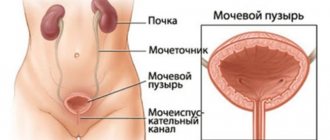08.02.2017
Almost everyone has heard about a disease such as candidiasis, but not everyone knows how dangerous thrush is. Despite the widespread belief that complications of candidiasis are a women's problem, doctors warn that men need to know what the threat of thrush is, and at the first symptoms in themselves (their partners) and undergo treatment.
Thrush is caused by fungi of the genus Candida. Normally, a healthy person always has them, without causing any problems. Some factors that create a favorable environment for the active proliferation of fungi can lead to thrush.
It is necessary that the environment is not acidic, and that the immune system is sufficiently reduced to not have the strength to resist pathogenic microorganisms.
Factors that can provoke thrush:
- venereal diseases;
- decreased immunity;
- disruption of the functioning of the endocrine system (hypothyroidism, diabetes, etc.);
- oncological diseases;
- dysbacteriosis;
- rehabilitation after surgery;
- self-administration of antibiotics and hormones;
- abuse of wearing synthetic underwear.
How does thrush manifest?
The symptoms of thrush are quite pronounced and can appear individually or in combination. Women may experience:
- severe itching in the genitals, pain in the vagina and outside during sexual intercourse, hygiene procedures;
- curd-like discharge with a sour odor.
In men, symptoms are determined by physiology. Itching sometimes bothers me, as does pain in the genitals. A rash may appear on the head of the penis, and a cheesy discharge may accumulate under the foreskin.
If the symptoms are manifested by one sign, this indicates the onset of the disease, but if there are several signs, this may indicate the presence of serious pathologies. If candidiasis is not treated for a long time, the disease will enter a chronic stage with regularly recurring relapses.
Treatment of thrush
Thrush is dangerous only when it has reached the chronic stage. With timely treatment, this process can be avoided. The course of treatment involves the use of a complex of medications, with the help of which the following results can be achieved:
- destroy pathogenic microflora;
- strengthen depressed immunity;
- completely restore beneficial flora.
It is necessary to treat thrush with the help of medications that can not only eliminate the symptoms of the disease, but also create a barrier to the growth of fungal colonies and get rid of the inflammatory process. For this purpose, antimycotic drugs of systemic and local action are used.
Treatment of fungal infections in men also involves taking antifungal drugs orally. Additionally, antifungal ointments are prescribed, such as Pumafucin and Clotrimazole.
When diagnosing fungal stomatitis in children, topical medications are prescribed. These can be ointments and solutions based on nystatin. In the most severe cases, they also resort to the use of Fluconazole. Additionally, antiseptic treatment is carried out. For this purpose, the oral cavity is rinsed after each feeding with chamomile decoction or a weak soda solution.
Regardless of the patient’s age, probiotics and vitamin complexes must be prescribed. They normalize the immune system and help cope with thrush in the shortest possible time.
Candidiasis is a common disease that does not pose a threat if treatment is started in a timely manner. Complications of thrush are possible only when the infection begins to spread throughout the body and affects other organs and tissues. Dealing with the consequences becomes very difficult. That is why it is extremely important to seek help from a specialist immediately after the first symptoms of the disease appear. At an early stage, it responds well to treatment and it is possible to get rid of the fungus in the shortest possible time.
Why is candidiasis dangerous for women?
Any disease of an infectious nature can cause complications. It is important to understand what this disease leads to in order to eliminate the consequences of thrush in the future. The main complications are listed below.
Cystitis and pyelonephritis against the background of thrush can develop in parallel or one at a time. Such consequences of thrush develop against the background of the movement of candidal fungi up the genitourinary system. Often the kidneys, bladder and ureters are affected not so much by thrush itself, but by the infections associated with it - mycoplasma, chlamydia, trichomonas, gonococci, etc.
If thrush is not treated in time, it spreads throughout the body, affecting the appendages. As a result, a woman develops adnexitis, which can be chronic with frequent relapses.
Candida has a detrimental effect on the mucous membrane of the genitourinary canal, causing erosion. Such complications of thrush are accompanied by discomfort, pain, burning and often bleeding.
Often there are consequences of thrush, such as adhesions of the uterine tubes. This occurs against the background of a long course of the disease. If tube adhesions are not treated, it subsequently leads to infertility. Thrush is often the cause of female infertility.
The Candida fungus multiplies against the background of reduced immunity and continues to reduce the body's protective functions. In this regard, dangerous microorganisms can invade the affected mucosa. It is important to promptly detect a disease that can seriously harm your health.
Many women are interested in whether thrush is dangerous for intimate relationships. Yes, the disease can reduce the sensitivity of tissues; intimacy is accompanied by dryness and discomfort. For these reasons, women more often refuse sex, gradually losing attraction and feelings of intimacy.
Thrush does not directly cause such a terrible diagnosis as oncology. However, due to thrush, the protective systems of the genitourinary system in women are reduced, which, against the background of a predisposition to cancer, can cause the development of the disease.
Risk factors for developing thrush
Candidiasis, or thrush, can affect anyone - from newborn babies to adult men and women. The disease is caused by the yeast fungus Candida, which constantly lives on the skin surface and mucous membranes. However, it does not always develop; it needs a certain push, which in most cases turns out to be a decrease in immunity.
The diagnosis of thrush is made on the basis of the clinical picture and the results of light microscopy. PCR, PIF and bacterial culture methods do not play an important diagnostic role.
How Simply Recommends
Why the medicine doesn’t work The key to successful treatment is, of course, following all the doctor’s recommendations and informing him of all significant changes during therapy. However, a specialist can talk as much as he wants about the regimen and duration of taking the drug, but most patients will still violate these rules. Read more
Thrush manifests itself with symptoms such as itching of the genitals and an unpleasant-smelling cheesy discharge (hence the name). The acute form of the disease requires immediate treatment. If you neglect this recommendation, there is a danger of transforming acute candidiasis into chronic, even recurrent.
Why is thrush dangerous in pregnant women?
While carrying a baby, a woman’s body is weakened and can easily catch any infection, including candidiasis. Women need to monitor their condition and consult a doctor at the first suspicion. You cannot take advertised drugs on your own; most of them are not allowed during pregnancy; others are prescribed with caution, monitoring the well-being of the mother and child.
Thrush in pregnant women occurs due to weak immunity, hormonal changes, and changes in the composition of the microflora in the vagina. In general, during this period, thrush is dangerous for both mother and child.
There may be consequences of candidiasis:
- tissues lose elasticity. Because of this, during childbirth, a woman can experience many ruptures, which then take a long time to heal;
- the baby can become infected with thrush while passing through the birth canal, then the fungus will get on his mucous membranes, and the newly born baby will have to begin treatment immediately;
- Another danger of thrush is that the fungus affects not only the vaginal mucosa, but also the internal organs of a woman. Infection of candidiasis in the fetus can lead to premature birth and miscarriage. Such a development of the situation is quite rarely observed, only if the expectant mother does not take care of herself at all and does not worry about her health.
Thrush - its main causes
Taking pills regularly can cause thrush
There are billions of microorganisms of various types on the human body and its mucous membranes. But until they begin to multiply rapidly, they do not bring any problems to a person and do not cause problems in the functioning of organs.
Thrush is caused by candida fungus. As soon as its quantity begins to increase, thrush develops, or as it is also called candidiasis. A number of factors can contribute to the development of the disease, including:
- regular use of medications, including antibiotics, which reduce the body’s natural defenses;
- hormonal imbalance, for example, as a result of pregnancy, menopause or the use of hormonal drugs;
- diseases associated with inflammation;
- insufficient genital hygiene;
- unhealthy diet, eating fast food.
Why is thrush dangerous for men?
A disease such as candidiasis can have consequences not only for women; men’s health can also deteriorate significantly. Thrush in men is not as common as in women.
This becomes one of the reasons why representatives of the stronger sex do not consult a doctor in a timely manner - some simply do not notice vague symptoms, others ignore them, consider them to be the norm or a temporary phenomenon that will pass on its own. It doesn’t hurt to find out why thrush is dangerous in order to understand the importance of timely response.
For example, thrush can provoke candidal urethritis. In this case, thrush carries consequences in the form of inguinal athlete's foot, infertility, chronic prostatitis, prostatitis. Another option why candidiasis is dangerous for the stronger sex is the manifestation of mycosis of the legs against its background, which is difficult to treat.
Therefore, when thrush appears, it is better to quickly cure it with local remedies and drugs that enhance immunity. And there will be no consequences. It is important for a man to undergo treatment together with his partner if she is diagnosed with candidiasis. This will keep him healthy and protect her from re-infection.
The appearance of thrush and the main symptoms of a fungal disease
If the Candida fungus, the main causative agent of thrush, is constantly present in the body of a healthy person, then why does such an unpleasant illness as candidiasis prevent him from leading a healthy lifestyle? A small number of different microorganisms on the mucous membrane form a certain balance, which is necessary for the proper functioning of the gastrointestinal tract or genital organs. The Candida fungus begins to threaten human health after changes in the external environment or the occurrence of chronic diseases. Factors that contribute to the rapid proliferation of pathogenic microorganisms:
- frequent hypothermia or overheating of the body;
- concomitant diseases of the gastrointestinal tract;
- weakening of the body's defense mechanisms;
- dysbacteriosis;
- unprotected contact with a carrier of the Candida fungus;
- poor nutrition;
- a sharp decrease or increase in a person’s weight;
- failure to comply with personal hygiene rules;
- smoking and drinking alcohol.
Anyone who leads a normal socially active life is at risk of developing thrush. Common symptoms of yeast mycosis include: vaginal discharge with a characteristic odor and color, pain in the lower abdomen, inflammation of the mucous membranes, pain when urinating, and even a rise in body temperature. Why is thrush dangerous if it goes untreated for a long period of time?
Why is candidiasis dangerous in children?
Pregnant women often ask their doctor what will happen if thrush is not treated. Their concern is not in vain, since when infected with a fungus, a child can acquire the following diseases:
- Thrush in the mouth. Because of it, the baby may feel pain while eating, as a result of which he begins to refuse feeding and loses weight. If candidiasis is not treated, the fungus can spread to the respiratory tract;
- Fungus on the skin. A particularly dangerous form of it is diaper dermatitis, which affects the baby’s genitals. Those who have suffered from such thrush in infancy may experience problems with the reproductive organs in adulthood.
Treatment of candidiasis in men, women, and children should be carried out under the supervision of a physician. The specialist will conduct a visual examination and refer you for appropriate tests to determine the causative agent of the disease and the presence of concomitant infections. After this, a course of therapy will be prescribed.
The sooner measures are taken, the faster it will be possible to stop the proliferation of the fungus and its spread throughout the body. This means that the likelihood of the disease becoming chronic and complications will be reduced.
What are the consequences of thrush?
The main threat of poor-quality antifungal treatment is the transition of the disease to a chronic form. Symptoms become regular and occur at least 4 times a year. The degree of their severity depends on the individual characteristics of the organism. The acute form of the disease destroys the surface of the mucous membranes.
Gradually, the fungus penetrates deep into the epithelium, causing an inflammatory process. The surface of the skin becomes bright red, swelling and erosive rashes appear. In a chronic course, hyperemic areas become brown, and inflammation is mild.
It is difficult to treat advanced disease. Intensive therapy sometimes takes 6 months or longer, and the risk of complications increases.
Among women
Female candidiasis is more common than male candidiasis. This is explained by the fact that the genitourinary system of the fairer sex is favorable for the proliferation of the fungus.
Gradually spreading throughout the pelvic organs and causing hormonal imbalance, the infection leads to the following complications:
- Cystitis. Infection of the reproductive organs is manifested by symptoms: burning and severe itching in the ureter, blood in the urine;
- Urethritis. Infection of the urethra manifests itself in the form of frequent and painful urge to urinate, white flakes and blood in the urine;
- Bacterial vaginosis. Disturbed vaginal microflora causes severe itching of the genitals, pain during sexual intercourse, and unpleasant-smelling discharge in the form of white lumps;
- Cervical erosion. The infection penetrates deep into the reproductive system, forming ulcers at the entrance to the uterine cavity. This is the basis for the development of an oncological tumor.
- Stomatitis. When the mucous membrane of the mouth is inflamed, the tongue and the inside of the cheeks are covered with a white coating with wounds and ulcers underneath, every meal is accompanied by painful sensations;
- Infertility. Chronic candidiasis causes adhesions to appear on the tubes, which prevents conception.
Most girls believe that candida can only be infected through sexual contact. This statement is incorrect. The fungus develops even in virgins under the influence of poor nutrition, antibiotics and poor hygiene.
The consequences of thrush in girls often result in cervical erosion. Because of the hymen, treatment is complicated: doctors do not prescribe vaginal suppositories, but it is also possible to get rid of the pathology with the help of tablets and ointments.
Conception
When planning a pregnancy within a few months, gynecologists recommend that expectant mothers undergo a full medical examination, lead a healthy lifestyle, give up alcohol and avoid stressful situations.
When infected with candidiasis, many women do not experience discomfort and become pregnant successfully. However, in the absence of antifungal therapy, the likely conception rate is greatly reduced. A change in the acid-base balance in the vagina creates an unfavorable environment that is detrimental to sperm. Therefore, before planning a pregnancy, bacterial vaginosis must be cured.
Despite the fact that conception is possible with thrush, the consequences of the disease are unpredictable. If left untreated, the pathogen can pass to the fetus and cause spontaneous abortion in the early stages.
During pregnancy
Any pathologies in the process of bearing a child negatively affect the health of the unborn baby. Hormonal changes in the body create ideal conditions for the proliferation of fungus. And although medicine does not consider vaginosis a serious disease, the consequences of thrush during pregnancy can be unpredictable.
The degree of risk depends on the specific situation and can only be determined by a qualified specialist. Common complications include:
- miscarriage, especially in the first trimester;
- premature birth, in the second or third trimester;
- infection of amniotic fluid leading to intrauterine fetal hypoxia;
- thinning of the cesarean section scar, which may rupture;
- inflammatory processes in the membranes.
After delivery, these pathologies are difficult to treat and sometimes become the cause of subsequent infertility.
During childbirth
Untreated thrush during childbirth poses a serious danger. The consequences for the fetus and the expectant mother can be disastrous:
- infection of a child during its passage through the birth canal;
- endometritis, leading to injuries to the vaginal walls;
- cervical rupture;
- infection of the kidneys and ovaries.
A dangerous fungus that greatly weakens the immune system and causes the death of epithelial cells. Later, in their place, connective tissue is formed that is unable to stretch during subsequent births. It breaks easily and does not heal for a long time.
In men
Representatives of the stronger half of humanity are less likely to become infected. However, they feel unpleasant symptoms no less acutely. A feature of male candidiasis is the hidden nature of the disease, which contributes to late consultation with a doctor.
The consequences of thrush in men lead to serious health problems:
- metabolic disorders leading to loss of strength and decreased immunity;
- cystitis – inflammation of the bladder, resulting in impaired urination function;
- urethritis - similar to acute gonorrhea, with sharp pain in the groin, thick mucous discharge appears in the morning, blood is present in the urine;
- phimosis – swelling of the foreskin, which makes it impossible to expose the head of the penis;
- paraphimosis – compression of the head by inflamed flesh, which leads to necrosis of the superficial tissues of the penis;
- nephritis – inflammatory processes in the kidneys.
Common candidiasis of the initial form is treated quite quickly and is not capable of causing serious pathologies. But the consequences of thrush, if not treated promptly, are unpleasant. With loss of sensitivity in the intimate area, erection weakens, and sexual intimacy is perceived as an unpleasant process. Cracks and open wounds make a man vulnerable to sexually transmitted and viral infections.
In children
The disease in babies is most often observed in the first year of life, when the immune system is not yet formed. Children's saliva contains a small amount of substances that control the proliferation of fungus and is unable to protect delicate mucous membranes. In newborns, the sign of candidiasis also manifests itself in the form of plaque on the skin of the perineum and around the anus.
If the disease cannot be recognized in time, its course develops into a chronic form. At this stage, it is possible that complications may arise in the form of dehydration, disruption of the digestive system, and sepsis. In girls, adhesions may form, leading to fusion of the labia.
Danger of disease
Advanced thrush can lead to urinary tract infection
When making a diagnosis, every woman wants to know whether thrush is dangerous and what its consequences may be. Experts say that with timely treatment, its prognosis is quite favorable. But if the pathology reaches a severe stage, then the consequences of thrush may be as follows:
- transition of the disease to the chronic stage;
- decrease in the body's defenses;
- infection of the urinary tract and kidneys;
- inflammation of the genital organs;
- cervical erosion;
- infertility, which is practically untreatable.
There are cases when the disease is asymptomatic. However, this does not mean that it is less dangerous. In such cases, complications of candidiasis manifest themselves in an irregular menstrual cycle, scanty, or, conversely, heavy periods.
Consequences of female thrush
Any fungal disease is potentially dangerous for a woman at any age and physical condition. Characteristic relapses of thrush can plague a person throughout his life. The negative impact of candidiasis, which not everyone knows about:
- • deterioration of health;
- • irritation of the vulva;
- • chronic vaginosis;
- • dermatitis;
- • secondary infections.
Fungi that affect the genital mucosa often remain underestimated. But the development of candidiasis leads to problems with the gastrointestinal tract, urinary system and affects a woman’s reproductive function. Deterioration of immunity leads to weakening of the skin and mucous membranes, and therefore dermatitis and irritation are inevitable. Ulcers that appear at the site of inflammation create favorable conditions for the penetration of new infections and pathogenic microorganisms.
Prevention, which should never be neglected, will protect the body from relapse of candidiasis. Daily washing, baths with medicinal decoctions and tinctures, hardening the body are good habits that will help delay the return of thrush. A healthy lifestyle and selection of healthy foods will strengthen the immune system, which can withstand the threat that arises. It is easier to avoid the consequences of protracted candidiasis if you promptly treat the mucous membrane for a fungus such as Candida.
Candida fungus, in itself, does not pose any threat to women's health, but a common fungal disease is characterized as a dangerous disease in subsequent relapses. Incompletely treated thrush, a disease left unattended by a woman, neglect of basic daily hygiene and prevention - collectively or individually, negligent attitude towards one’s own health leads to complications that are not always treatable. Taking care of yourself is the key to a happy life, especially for representatives of the fair half of the planet. Health is built from insignificant daily little things that a woman does not forget about.









